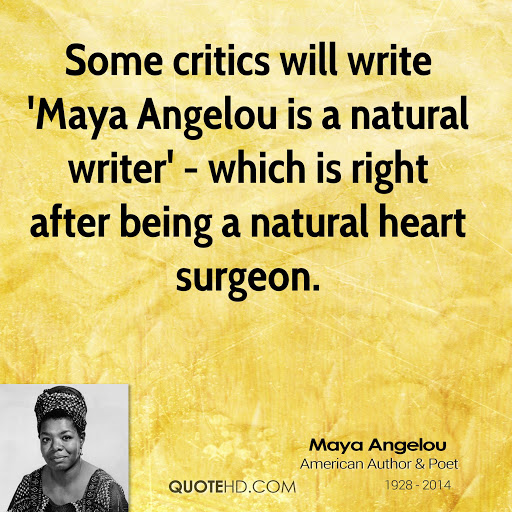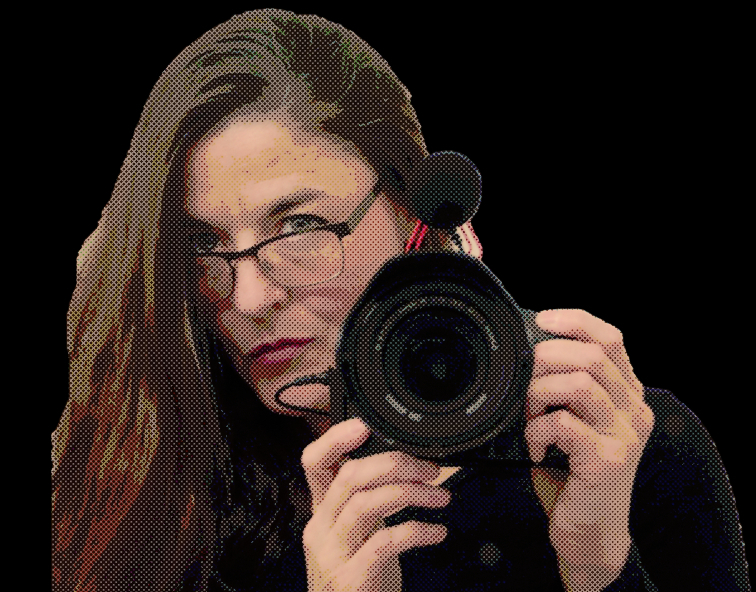
Like most endeavors in this thing we call life, how good you are at something depends on a combination of natural skill and drive to improve. Notice I said how good you are at something, not how successful you are, because success depends a lot on luck…more than most successful people are willing to admit. If you’re good at something, it increases your odds of success, but you can still suck at something and be successful at it.
Which is good for you! …Or soul-crushing if you’re one of those unlucky people who are good but unsuccessful (which…AHEM…might include me…or so I tell myself so I can sleep at night DON’T JUDGE ME). But it’s still probably good for you, because not everyone can be a natural even at something they’re passionate about. You can religiously follow football, for instance, and memorize all the plays and train every day like little Rudy, but if you’re not a superhumanly fast and agile freaky man-giant, you’ll never be a pro-bowler no matter how badly you want it.
There are, in fact, a set of natural skills that make a person a natural writer. Unlike football, you don’t need these skills to be successful, but they help. Hell, if a white lady can write a mediocre book about the “authentic” Mexican migrant experience and be paid seven figures for it, you can too! (The secret to her success: insider connections of course, and smartly choosing the evergreen subgenre of general fiction stories specifically written to make white people feel better about racism, ala The Help, The Blind Side, Driving Miss Daisy, Crash, Green Book, etc. But I digress…)
How can you tell if you’re a natural born writer? Here are the five skillz of someone born to word-sling for a living:
1. You can “hear” when a sentence or paragraph doesn’t sound right
What is “good” writing exactly? Most people can’t tell; in fact most readers don’t care, which is why badly written books still get the thumbs-up from editors who should know better. But people with “the writing knack” can tell, and it drives them crazy. Something is badly written when:
- Words are repeated too close together, ex: “He heard a knock on the door, then got up to answer the door.”
- The same word is used to start consecutive sentences in serial, usually a pronoun or the word The, ex: “He heard a knock at the door. He got up and answered it. He was shocked to see his ex-wife on the other side.”
- Lack of sentence structure variety in a paragraph or consecutive sentences, ex: “Answering the door, he was shocked when he saw his ex-wife on the other side. Leaning in, he whispered, ‘What are you doing here? My wife is home!’ Throwing her head back, she laughed. ‘It’s time she knew the truth!’”
- Lack of efficiency, i.e. over-explaining things, using more words than necessary, or repeating information, ex: “As tears rolled down his face, he screamed, ‘You have to leave!’ He was so upset, he couldn’t help crying.”
- Bad dialogue that doesn’t flow and/or isn’t even close to realistic, ex: “He screamed at his ex-wife, ‘I do not know why I did such a terrible thing with you!’ His ex-wife answered, ‘I never stopped loving you.’”
A good writer might employ these bad writing techniques on purpose and sparingly for a specific effect, but bad writers use them all the time because they can’t tell they’re bad. A natural writer can tell, and it physically hurts to read it un-ironically.
2. You read and watch like a writer
Though most people can’t tell or don’t care if a story or writing is particularly good or bad, natural writers can tell—and they can tell you exactly why. This is the reason there’s often a gap between what critics consider good and what audiences consider good—critics are trained to pay attention to the details, while also considering the broader implications of a story, its themes, and its flow. Natural writers do this, too. They’re not distracted by hype, fancy graphics, good-looking actors, action sequences in movies and TV shows, or by a book’s page-turning cliffhangers…though they can still appreciate and enjoy all those things. When there are gaping plot holes, or the story or writing is sub-par, they can tell.
(On that note…Avatar is a fucking terrible movie, people! Why are there four sequels in the queue for this thing WHY?!? And Us is overrated…that’s right come at me! I’m a hardcore SJW and I still can’t figure out what the movie says ABOUT AMERICA that’s so freakin’ deep. Just because Get Out was genuinely thought-provoking doesn’t mean everything Jordan Peele puts out will be, too. Throwing that out there.)
3. You reject good ideas because they’re not good enough
I’ve said this before, somewhere, I think, in one of my earlier blogs—I’m not gonna look through them all cuz it’ll take too long—but if you’ve only got one idea for an awesome book, then you’re screwed. Unless you get very lucky or have an insider advantage, your first book is highly unlikely to be a hit. You need to write several books to build an audience. Most authors who are “overnight successes” have actually been writing and publishing for years.
Truly creative people, in nearly every field that involves creativity, have LOTS of ideas. The key to success is picking out the ideas with the most potential, like a dog breeder selecting the pick of the litter. Natural writers have a constant pool of ideas, and choose to write full books on the ones they carefully decide have the best chance at success (whether the criteria for success is commercial, critical, or personal is up to the author).
4. You can describe action in clear detail
Bad writers have a tendency to be fuzzy on the details of action, while being overly-descriptive of physical appearances. Characters who have “ebony black hair like silk spun from the night sky” and “almond-shaped, flashing emerald eyes” will “flail” their arms during fight scenes, or “make quick work” of an enemy, or have “magical” and/or “breathtaking” sex. None of these action descriptions form a clear mental image.
(There’s also a common related issue where characters will suffer horrendous injuries, like major broken bones, knife or bullet wounds, eyes gouged out, etc., but be barely affected by them. Note to all authors: people who’ve suffered serious injuries won’t then launch into a monologue, or bounce back up like everything’s fine, or make sweet love. Mostly they just roll around and scream, then maybe pass out.)
One time, in a writing workshop, I read a short story where the last sentence was something like, “And then she was attacked by a dog and died.” It wasn’t meant to be funny, even though I laughed when I read it. Yes, I can form a clear mental image of a dog attack, but: 1) it came out of nowhere and wasn’t meant to be satire, and 2) taking one sentence to describe someone’s gruesome death sucks away all the impact it was supposed to have, and just leaves the reader confused—or laughing inappropriately and getting nasty looks from your workshop partners.
Every writer, no matter how good they are, needs to spend time honing their descriptive skills; good descriptions are absolutely key. Natural writers have the advantage of being able to visualize an action sequence and describe what’s happening in words that a reader can use to conjure a clear mental image. Practice makes the natural skill better.
5. You can “inhabit” people with totally different personalities, similar to an actor performing different roles
This is antithetical to the “write what you know” credo a lot of aspiring authors misunderstand. You don’t need to be a serial killer to write a story involving a serial killer; you only need to be able to pretend to be one, like an actor does when they play a role. When a writer can’t imagine what people with different personalities and backgrounds would act like in different situations, characters come off as cardboard cutouts or caricatures.
Natural writers can play-act a conversation or scene in their head between two completely different people, with different goals and priorities (which is key to constructing a good scene; I’ll describe how to do this in a future post). A male writer who “can’t write women,” for instance, is a shitty writer.
It’s important to caveat that the concept I’ve just described is different than “pretending” to be someone from a different culture, especially a marginalized culture plagued by racist stereotypes (which is how the American Dirt author got into trouble). Personalities and cultures are not the same thing. What is and isn’t cultural appropriation is a whole different subject dependent on context, and I’m not going to tackle that beast now because it would take too long (maybe in a future post…we’ll see).
Like I said before, don’t panic if you don’t do some or any of these things. You can still be a successful writer! It’ll just take more work on your part to study the craft, and, well, luck. Or just get a job at a publishing company.
